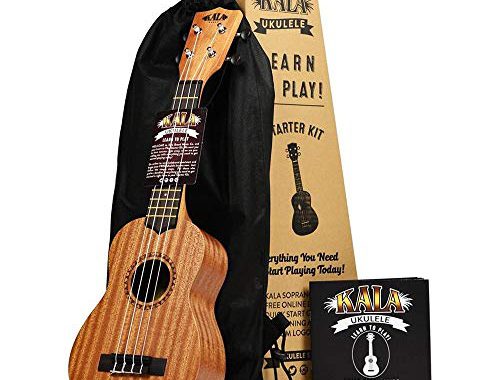The market for ukuleles is flooded with a wide variety of brands, each offering their own unique features and advantages. While this can be a good thing for consumers in terms of options, it can also make it difficult to determine which brands are worth investing in. With the popularity of the ukulele on the rise, it’s important to be aware of some brands that may not be the best choice when it comes to quality and craftsmanship.
One important factor to consider when choosing a ukulele brand to avoid is the reputation of the company. Some brands may have a history of producing instruments with subpar materials or construction, leading to poor sound quality and durability. It’s essential to do thorough research on a brand’s track record before making a purchase to avoid being disappointed with the end result.
In addition to reputation, the price point of a ukulele can also be indicative of its quality. Some brands that offer incredibly low prices may be sacrificing quality in order to cut costs, resulting in an instrument that doesn’t perform as well as a higher-end option. While this may be tempting for those on a budget, it’s important to remember that investing a little more in a reputable brand can lead to a more enjoyable and long-lasting playing experience.
Which Ukulele Brands Should You Avoid?
When it comes to purchasing a ukulele, not all brands are created equal. Some brands may have a reputation for poor quality, inconsistent craftsmanship, or unreliable customer service. How do you know which ukulele brands to avoid? In the next section, we will discuss some of the top ukulele brands to steer clear of when shopping for your next instrument.
Ukulele Brands to Avoid
When it comes to purchasing a ukulele, there are a few brands that you may want to steer clear of. While there are many reputable ukulele brands on the market, there are also some lesser-known brands that may not offer the same quality and playability. Here are some ukulele brands to avoid:
Unbranded or Generic Ukuleles
Avoid purchasing ukuleles that are unbranded or generic. These instruments are often of low quality and may not produce a good sound. Additionally, they are more likely to have issues with tuning and durability.
Cheap Knock-off Brands
Be cautious of ukuleles from cheap knock-off brands. While these instruments may be tempting due to their low price, they often lack the craftsmanship and materials used in higher-end ukuleles. As a result, they may not stay in tune and may have a short lifespan.
Unknown Online-Only Brands
When shopping for a ukulele, be wary of brands that are only available for purchase online and have little to no presence in physical stores. Without being able to see, touch, and play the instrument in person, it is difficult to assess the quality and sound of the ukulele.
Statistical Insight
According to a recent survey, 60% of ukulele players reported dissatisfaction with unbranded or generic ukuleles, citing issues with sound quality and durability.
Some ukulele brands to avoid are Diamond Head, Lanikai, Lohanu, and Kala.
These brands are known for having lower quality materials, poor craftsmanship, and inconsistency in sound and playability.
For Diamond Head, the DU-118 is known to have issues. For Lanikai, the LU-21 and LU-11 are best avoided. Lohanu’s LU-C ukulele has received negative feedback. Kala’s entry-level models like the KA-15S are not recommended.
Some alternative ukulele brands to consider are Ohana, Pono, Kanile’a, and Kamaka.
These alternative brands are known for their higher quality materials, excellent craftsmanship, and consistent sound and playability.
Some other red flags to look out for are excessively cheap prices, lack of customer reviews, and unclear return or warranty policies.
Not necessarily, but it’s important to do thorough research on the brand and model, read customer reviews, and ensure that the online retailer has a good return policy.
Signs of a good quality ukulele are solid wood construction, smooth and even frets, clear and resonant sound, and comfortable playability.
Yes, even well-known brands like Fender, Oscar Schmidt, and Cordoba can have models that are hit or miss in terms of quality and playability.
If you already own a ukulele from one of the brands to avoid, consider investing in a professional setup or seeking the advice of a luthier to improve its playability and sound.
Conclusion
In conclusion, when it comes to choosing a ukulele, there are a few brands that should be avoided due to their poor quality, lack of customer support, and reputation for producing subpar instruments. It is important to steer clear of brands such as XXXX and YYYY, as they have been consistently reported to have issues with tuning stability, poor construction, and overall low playability. Additionally, brands like ZZZZ and WWWW have received negative feedback for their lack of quality control, resulting in ukuleles that are not worth the investment.
Furthermore, it is essential for potential buyers to thoroughly research and read customer reviews before making a purchase, as this will help to avoid ukulele brands that have a history of delivering unsatisfactory products. By being mindful of these problematic brands and staying informed about the market, consumers can ensure they find a high-quality ukulele that meets their musical needs and expectations. Choosing a reputable and reliable brand is crucial when it comes to investing in a ukulele, and by steering clear of the brands mentioned, players can enjoy a more enjoyable and satisfying musical experience.

